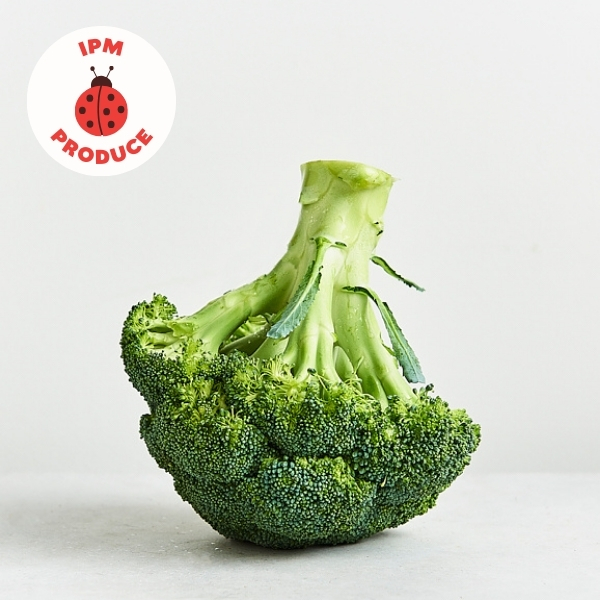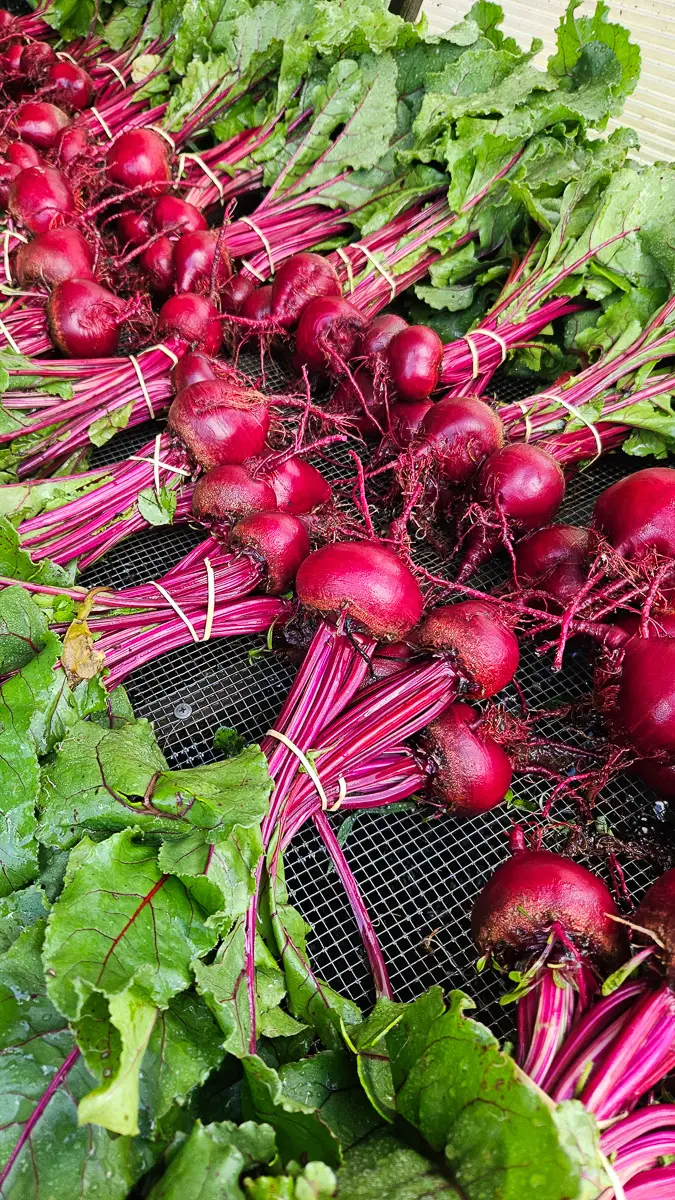
Low impact
Two years after launching our affordable IPM fruit and veg range around 30% of our set veggie boxes are now IPM (that’s doubled in a year!).
People tend to shop pragmatically, when an option isn’t within our budget we’ll look for the next best thing we can afford.
For sustainable fruit and veg IPM is the obvious affordable alternative.
Now it’d be reasonable to ask – What even is IPM?
IPM, if you don’t know, is produce grown by farmers practicing Integrated Pest Management.
And if Integrated Pest Management isn’t ringing any bells here’s how entomologist and IPM pioneer, Paul Horne, describes it….
….Integrated Pest Management is doing everything you can to encourage beneficial insects like ladybird beetles, hoverflies and lacewings to help you control pest insects in your crops instead of using broad spectrum pesticides that kill all insects, including the good ones.
We should take one step back here to explain. Conventional produce growers typically rely on preventative pesticide approaches to manage pest insects in crops – basically it’s a pre-programmed schedule of pesticide spraying on produce regardless of whether pest insects are present or not.
And here’s how Integrated Pest Management works;
IPM is always trying to tip the balance in beneficial insects’ favour – it uses techniques such as rotating crop families, green manuring and planting out habitat like umbelliferous flowers which aphid-eating hoverflies, pictured above, like to hang out on.
The key to IPM is knowing how many pest insects you have in your crop at any one time – this involves lots of trapping, counting and observing.
If you have zero to reasonable levels of a pest then you do nothing and leave the beneficial ladybirds, hoverflies, lacewings etc to keep numbers under control.
According to IPM broccoli farmer and consulting agronomist, Stewart Grigg, leaving the work to the ladybirds etc and not having to spray at all happens a lot more than you would think.
If, however, there are too many pest insects for your beneficial insects to eat and your crop is at risk then you’d use a certified organic biological spray like DiPel that targets specific pest insects without harming your ladybirds etc.
The last resort if organic sprays don’t work and the infestation is very severe, is using a targeted chemical spray that leaves beneficial insect populations unharmed and ready to eat the next lot of pests.
You may ask – Why haven’t I ever heard of IPM?
Paul Horne explains that despite creating an accreditation and a label to identify produce grown using Integrated Pest Management, IPM farmers remain largely invisible.
The reason for this according to many farmers we’ve talked to is that Coles and Woolies, who sell 70% of the nation’s groceries, are reluctant to tell customers which produce on their shelves is IPM.
And you might well say, But that’s just madness!
The thing is promoting IPM produce means identifying the fruit and veg that relies on ladybirds to protect it, which by default identifies the fruit and veg that relies on lots of pesticides to protect it.
And when you’ve spent decades and millions of dollars crafting your image as fresh food people, then the last thing you want to talk about is pesticides on your produce.
Which is another reason why Fair Food ranges IPM produce.
We believe that not only should there be an affordable, low impact produce alternative, but that the IPM farmers who grow that food should get the recognition they deserve.
You can find our IPM produce range – clearly labelled with our ladybird badge – in the fruit and veg section.
Have a great week
Chris

